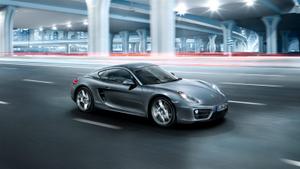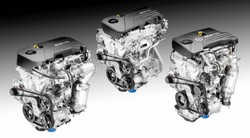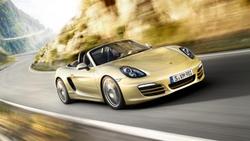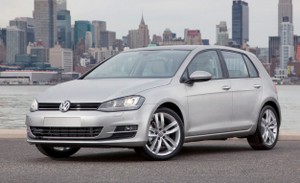
Smaller Is Better For Automakers – And Consumers Shouldn’t Notice Any Difference
The global drive to reduce greenhouse gases and increase vehicle fuel efficiency is pushing automakers to reduce the size of their engines – while trying to keep all of attributes consumers expect from their cars. Engineers have pushed the limits of technology to produce engines that are more efficient, meet increasingly stringent pollution standard and yet make better horsepower and torque than previous generations.
Recently, three auto companies announced new engine families that epitomize this new trend:
- General Motors’ new engine family
- Porsche’s new four-cylinder engines
- VW’s new diesel engine
Let’s look at each of these to see how they plan to ease consumers into this new generation of engines.
General Motors’ New Fours
After successfully going through bankruptcy, GM is now starting to put money back into development of its hardware, with a focus on engines that can serve its models around the world. That world-emphasis means fuel efficiency is at the forefront.
The new family of small engines GM just announced will eventually include 11 powerplants that will range from a 1-liter turbo three-cylinder up to a 1.5-liter turbo four. All will have aluminum blocks and heads, which should result in lighter weight to enhance any efficiency gains from the engines themselves. In addition, they have double overhead cams with four valves per cylinder, variable valve timing, water-cooled exhaust manifolds, variable oil pumps to save energy and piston cooling jets.

Some engines may also feature direction fuel injection and turbocharging, depending on the market.
GM said variants of the modular engines would be able to be produced on the same assembly line in five plants around the world. Eventual volume could reach 2.5 million units, GM added. The first engine, the Ecotec 1-liter turbo three-cylinder, will be sold in Europe, but no U.S. appearance for it has been announced, but several of the engines are likely to show up in GM’s small cars and applications such as the Chevy Volt and Cadillac ELR range-extended electric cars, which currently use a 1.4-liter non-turbo engine as a generator.
The engines are designed to put GM a leg up on Ford’s EcoBoost engines with quieter operation and as good or better efficiency and power.
Porsche Goes Back To Four
Porsche has more of a challenge. This subsidiary of the Volkswagen Group doesn’t make very many cars and specializes in sports cars (even though its current best-seller is an SUV) and has an image that is key to its sales success.

Even though the company’s heritage is in small displacement engines, in the more recent past that image and sales were tarnished with some four-cylinder models concocted in partnership with VW. the 1969-76 914 was ridiculed as a VW-Porsche and was finally dropped when Porsche returned to a focus on its higher-end sports cars.
Like the engine offered in the 914 – and Porsche’s larger six-cylinder engines – the new engines will be horizontally-opposed or “flat fours” and will be produced on the same assembly lines. Compared to the offerings of the 70s they will bring considerably more technology and may produce almost 400 horsepower in some versions. The current 2.7/3.4-liter six-cylinder engines in the Boxster and Cayman production from 265 to 340 horsepower.
They should aid the Boxster and Cayman models in which they’ll be available by reducing weight and thus boosting handling and braking.
“We will continue with the downsizing strategy and develop a new four-cylinder boxer engine, which will see service in the next-generation Boxster and Cayman,” said Porsche CEO Matthias Muller, in an interview with Germany’s Auto Motor und Sport magazine. “We will not separate ourselves from efforts to reduce CO2,” he added.
Of course reduced CO2 translates into better fuel economy which, while not a major focus of Porsche buyers, is a concern for the corporation that produces them.
Diesel Also Moves Forward
Volkswagen’s build a good reputation with its small, turbocharged direct-injected gasoline and diesel engines, but its engineers are not resting on their laurels. This year VW will introduce a new four-cylinder diesel it has dubbed the EA288 in its VW and Audi models.
The engine does what diesel engines have been doing in each of several generations since being introduced almost two decades ago – increasing horsepower and torque while decreasing fuel consumption and emissions. Our experience with VW and Audi TDI models has been excellent.

The engine will show up first in the new Golf due this year. Although it has the same displacement as the engine it replaces at 2.0-liters, the engine is all new, an Audi spokesperson told Clean Fleet Report. While keeping pace with new emissions restrictions, the diesel also is expected to push various models’ fuel economy ratings beyond their current range of 41-43 mpg. In addition, VW engineers said the new engine would be a worldwide model, ending the current practice of using different engines in Europe and the U.S.
As was seen in GM’s new engine line, the VW diesel added detailed features to increase efficiency, including reduced in-cylinder friction, an oil pump with controlled internal airflow, a variable water pump, a new thermal management system and a roller cam. It also has an intercooler integrated into the intake manifold and adds urea exhaust aftertreatment.
VW also announced that the EA288 will be B20 (20 percent biodiesel/80 percent ultra-low sulfur diesel) compatible. After appearing in the Golf TDI, the engine will be found in other VW and Audi products, including the Jetta, Sportwagen, Passat, Beetle and Audi A3, among others.
Words and Photos By Michael Coates; Some Photos By the Manufacturers
Posted March 29, 2014
Related Stories You Might Want To Check Out:
10 Best Engines Named By Magazine
What Is Start-Stop In A Car?

Nice read. Any insight as to when diesel hybrids might hit the NA market?
David,
The Diesel-electric hybrids are coming. They just launched in Europe with a Peugeot model and some Mercedes. I expect to see the Mercedes BlueTEC hybrid to appear over here in the ML350 (or maybe even an ML250!) first. The biggest problem–fuel economy is good, but not diesel+hybrid great and the price is diesel+hybrid. So initially it will probably only be found in high-end SUVs. As things scale up, it may migrate down to some high-end passenger cars like the Mercedes S-Class and Audi A8, helping the automakers to meet CO2 and CAFE standards. –ed.
David,
Also caught some news from BMW today–an X5 plug-in hybrid with a four-cylinder engine. No word on whether it will be diesel or gas, but diesel makes more sense with that size vehicle. –ed.
The Consumers Do Experience Difference , And nothing Beats a Proper V8 or a Straight 6
Take you Puny Lousy 4 Bangers , and Shove it Up Your A** ,
There;s no point buying a Porsche with a 4 Cylinder……….
@Behzad,
Of course, everyone’s entitled their own opinion and we certainly have our own. But some of those “Puny Lousy 4 Bangers” are cranking outbetter horsepower-to-weight numbers than their larger cousins. And you do recall the Porsche 356, don’t you? –ed.